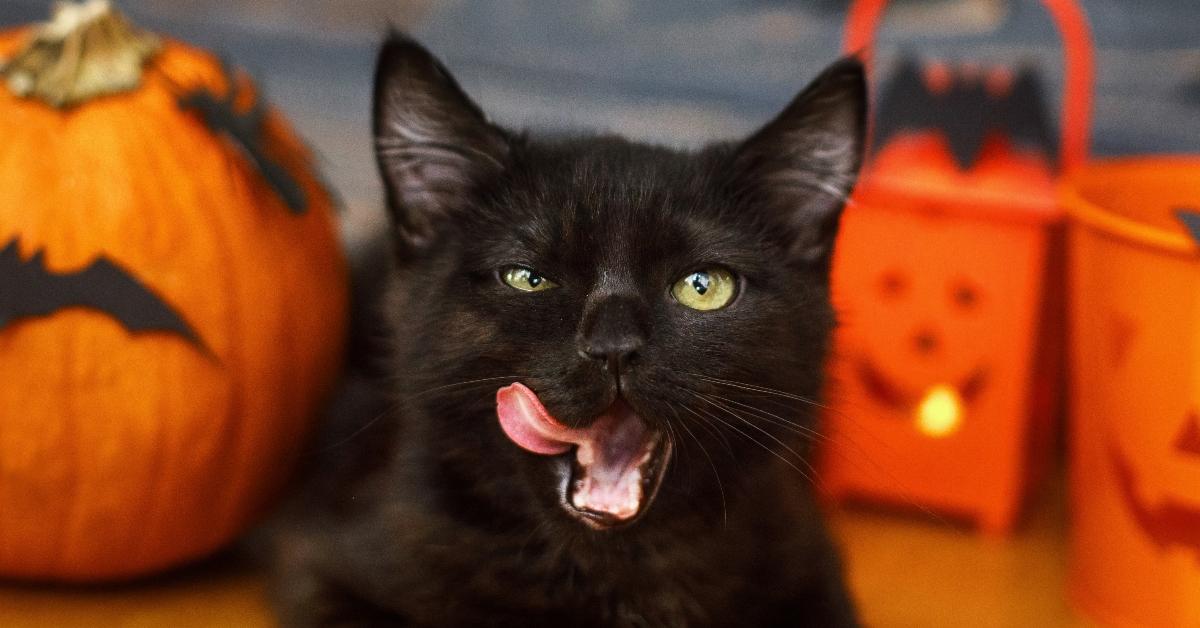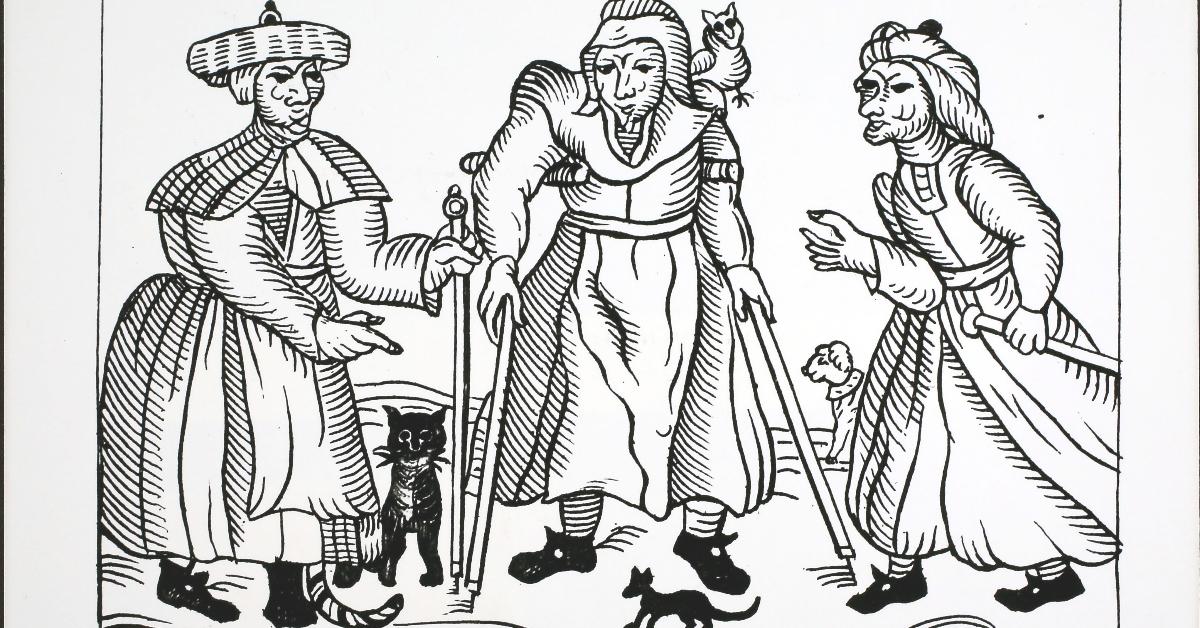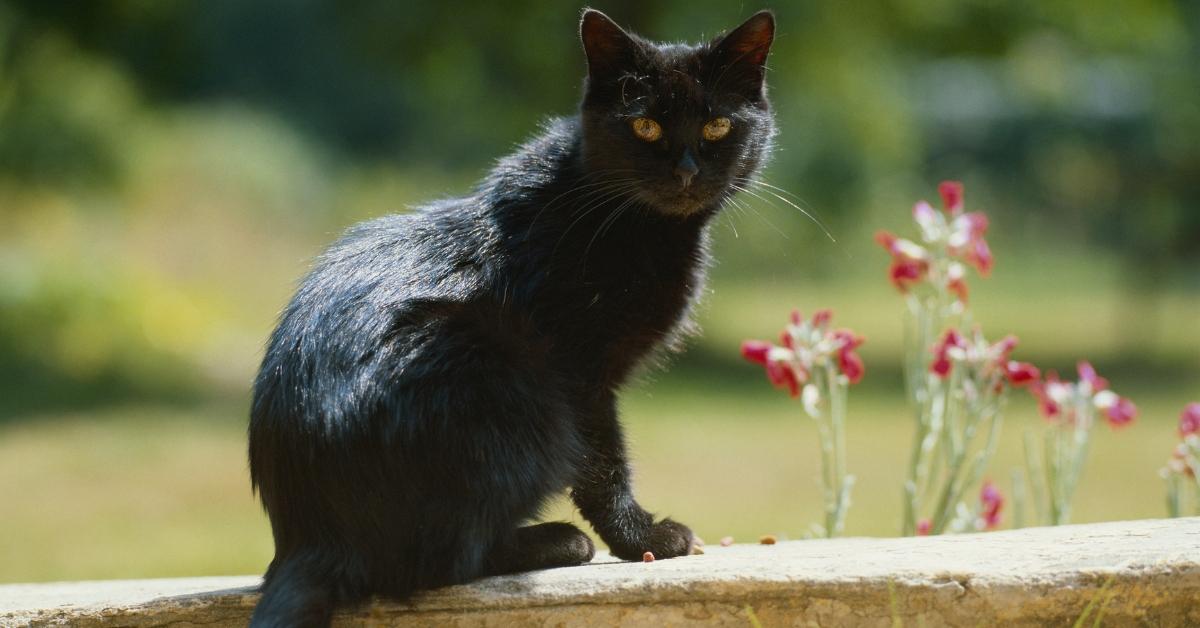Exploring the Historical and Cultural Bias Against Black Cats
Published Aug. 17 2023, 3:45 p.m. ET

National Black Cat Appreciation Day is celebrated in the U.S. on August 17 every year, but n reality, black cats rarely get a lot of appreciation. Studies have found that black cats are less likely to be adopted and more likely to be euthanized than cats of other colors, reports Psychology Today.
So what’s the reason for this “black cat bias”? Do people really judge a cat based solely on the color of its fur? Why don’t people like black cats? Here's what you need to know about the cultural history of bias against these midnight kitties.

Why don’t people like black cats?
The reasons people don’t like black cats are ridiculous and unwarranted, as are most biases. Sadly, in a study from 2020 that measured cats in a Kentucky shelter from 2010-2011, statistics largely found that black cats experienced the highest chance of euthanasia but also a slight increase in adoption the closer it was to Halloween.
Here are three main reasons black cats have a bad rap.
Black cats are the subject of many superstitions.
For generations and across cultures, the black cat has been a symbol of bad luck. You’ve most likely heard the phrase, “Don’t let a black cat cross your path,” or seen a movie where a witch transforms into a black cat. There are even superstitions where cats should not be left around babies in case they "steal their breath," per Snopes.
Black cats have been associated with witchcraft and Satanism since the 13th century. In the 2013 book “Witchcraft Confessions and Accusations,” author Mary Douglas wrote that Pope Gregory IX in 1233 told his parishioners, “Satan would appear as a black cat, or as a frog or toad, or as a furry man…”

A woodcarving of three witches and their cat familiars.
In the Middle Ages, the Christian church killed suspected “witches.” If the person had a cat, it was considered the witch’s assistant or familiar and also killed, per The History Channel.
The independent nature of cats and their “healthy disrespect of authority” contributed to the stigma, Wiccan priestess Cerridwen Fallingstar told the History Channel. “They don’t fawn, like dogs, upon even the unworthy. In the church, neither independent women, nor independent animals, were to be tolerated.”
During the Middle Ages, thousands of cats were killed allegedly for being superspreaders of the Bubonic plague in the Middle Ages. However, The History Channel notes the extermination of cats only fueled the spread of the plague by rodents.
Black cats are hard to read.
If cats in general seem indifferent, that lack of emotion is suspected even more in black cats. The dark fur on a black cat makes it more difficult to read their facial expressions, thus making people believe they are less friendly and more aggressive, Psychology Today reports.
Black cats are hard to photograph.
Most of the reasons people don’t adopt black cats are pretty silly, but rejecting a black cat because it doesn’t photograph well is pure nonsense. Unfortunately, this is a reason for black cat bias in a world of Instagram, Facebook, and other social media outlets where people love to post pictures.

There are plenty of reasons to adopt (don’t shop) a black cat.
Black cats are no different than any other cat up for adoption at your local animal shelter. Cats can have different personalities, but the color of their fur hardly has anything to do with that.
If you are willing to open your heart to a black cat and make it a part of your family, just make sure you adopt from your local pet rescue or animal shelter instead of shopping for one at a pet store. There are even pet rescues specifically for black cats if you'd like to bring home a little shadow of your own.